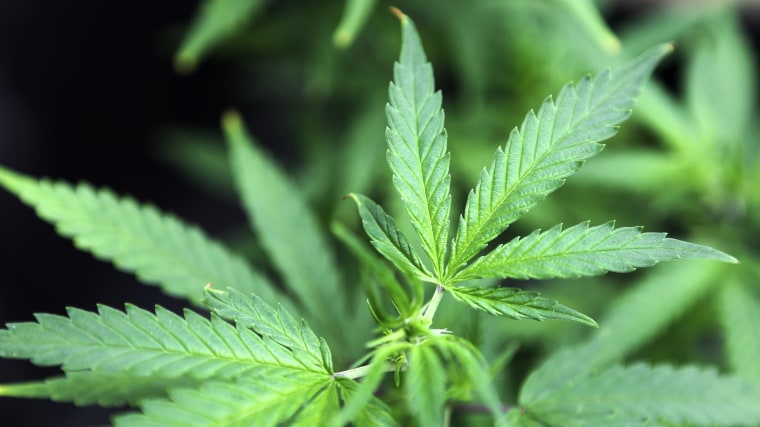There have been some historic breakthroughs in recent years on U.S. drug policy, but there's an under-appreciated fragility to the progress. When voters in Alaska, Colorado, and the state of Washington voted to legalize marijuana, for example, their experiments were allowed to proceed because the Obama administration extended its approval.
But it didn't have to -- under federal law, officials could have ignored voters' will and blocked those policies from advancing. In this case, neither President Obama nor Attorney General Eric Holder wanted to intervene, so state experimentation has been allowed to flourish.
There is, however, a presidential election coming up -- the outcome of which may have an enormous impact on those experiments.
If New Jersey Gov. Chris Christie (R) becomes president of the United States, he said on "The Hugh Hewitt Show" Tuesday, he will "crack down" on those states that have ended prohibitions on marijuana. When asked by Hewitt if he would enforce federal drug laws in those states that have legalized and regulated cannabis, Christie responded unequivocally.
Leaving himself no visible wiggle room, the Republican governor said, "I will crack down and not permit it." Christie added that a clear message must be sent "from the White House on down through federal law enforcement" that states "should not be permitted to sell it and profit" from legalizing marijuana.
As a matter of policy, a Christie administration would clearly have the authority to impose such a blanket policy. Obama has permitted states to pursue their own course, but federal law has not changed as it relates to illegal drugs. That would require congressional action, which is not realistic given Republican control.
In other words, come January 2017, if Obama's successor decides to scrap state marijuana laws in Alaska, Colorado, and the state of Washington, then those laws will effectively be rendered moot -- regardless of voters' will -- because the White House will have said so.
As a political matter, however, Christie -- and any other national candidate who adopts this posture -- should probably appreciate the broader political risk. Not only were these state marijuana laws approved by voters, but there's ample public-opinion research that shows public attitudes shifting to the left on the issue.
There's very little evidence that the public is looking for a "crackdown" from federal law enforcement.
For whatever reason, Christie wants to get out in front on this issue. Indeed, the New Jersey Republican apparently feels very strongly about this, saying last month that he wouldn't want tax revenue through marijuana sales, calling it "blood money."
But look for every candidate to be pressed for an answer on the same question. Their answers will almost certainly have a significant, real-world impact.
